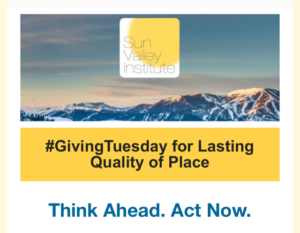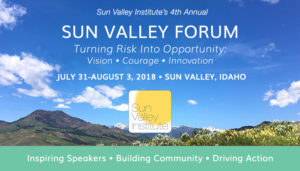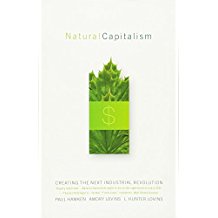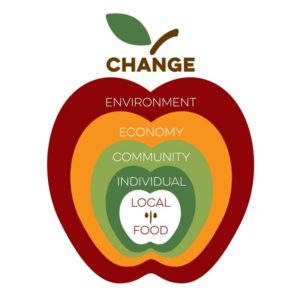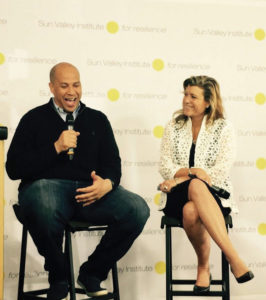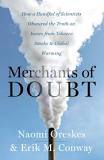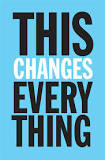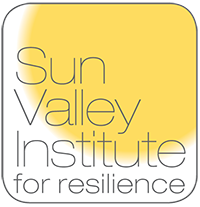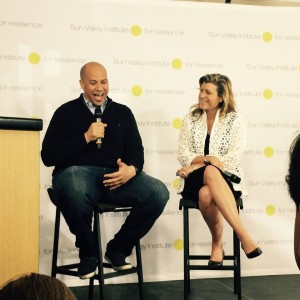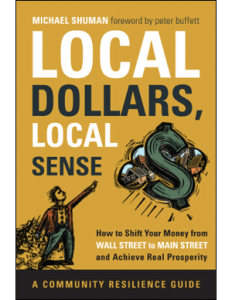Aimee Christensen
Blaine’s future.
November 27, 2018
|
|
|
|
|
SVI: Where Convention and Opportunity Meet
August 3, 2018Initial takeaways from the 2018 Sun Valley Forum:
Re-invent impact.
The media promotes crazy extremes; the changing climate is not a political ideology.
Time is imperative.
“Stop thinking in silos.” -Julie Wrigley
407
Climate Mayors — the national coalition of 407 U.S. Mayors dedicated to pursuing solutions to global warming — denounces this unprecedented attack on both the environment and states’ rights, and vows to continue moving forward on transportation policies that help reduce the impact of climate pollution.
“I promise to leave the world better than I found it.”
The authors of Natural Capitalism say that these choices are possible and such an economy would offer a stunning new set of opportunities for all of society, amounting to no less than the next industrial revolution. The book has many practical suggestions for companies interested in a sustainable future.
According to the authors, the “next industrial revolution” depends on the espousal of four central strategies: “the conservation of resources through more effective manufacturing processes, the reuse of materials as found in natural systems, a change in values from quantity to quality, and investing in natural capital, or restoring and sustaining natural resources.
We win or die by our culture; we are everyday change makers.
#ClimateOptimist
The Climate Optimist Manifesto:
“I believe we can solve climate change.
I will shine a light on solutions, share my optimism & take positive action.”
“There isn’t enough hope–we have to keep hope alive”
“Martin Luther King didn’t say, ‘I have a nightmare.’ He said, ‘I have a dream.'”
BlessedTomorrow.org
Climate Change Mitigation and Advocacy in 2018 and Beyond
by Anita Fete Crews
6.14.18
On May 2, Blessed Tomorrow and Auburn Seminary co-hosted the 2018 National Climate and Faith Leadership Forum, a gathering of nearly 50 faith leaders exploring how to increase climate change mitigation and advocacy activities across the country. Participants represented a diverse group of faith institutions and faith-based organizations, shared best practices, and discussed how to catalyze new, bolder, and broader efforts such as committing to 100% clean energy. Faith organizations and leaders are increasingly adopting climate change as a top priority, and embracing care for God’s creation as part of their faith identity and moral responsibility.
http://blessedtomorrow.org/blog/climate-change-mitigation-and-advocacy-2018-and-beyond
“Vote with your fork.” -Ali Long
“Local Food Alliance…is on and pushing the leading edge of dynamic social and economic changes that are increasingly important in an ever-widening circle of acceptance.” – Larry Schoen, Blaine County Commissioner
Senator Cory Booker (D) spoke with Founding Executive Director Aimee Christensen at the first Sun Valley Forum four years ago. On Friday, August 2nd, at the Netroots National Annual Conference he shared:
“No matter how powerful corporate greed and corporations might be getting, the power of the people is greater than the people in power.”
And this gives us hope.
[More from the forum soon–check this space.]
Change or be changed.
October 9, 2015Those who dispute climate change are, ‘wrong, uniformed, and are contradicting the data.’
-Russ Brown
Scientist Russ Brown, B.S. & M.S. in Chemical Engineering from New Jersey Institute of Technology formerly of the Allied Chemical Corporation, Idaho National Laboratory, and Argonne National Laboratory, spoke at the Ketchum Community Library Thursday evening, Oct. 8th, an event sponsored by the Environmental Resource Center. The presentation, “Climate Change Dynamics,” was moderated by Sun Valley Institute for Resilience Executive Director Aimee Christensen. Mr. Brown formerly served as the President of the Idaho Alpine Club, Idaho Environmental Council, and Greater Sawtooth Preservation Council.
Mr. Brown’s focus was presenting perspective, and data, on the issue of climate change and how it’s effecting our planet’s future, focusing on carbon, and methane emissions. Climate, which is basically the aggregate study of weather, is changing 100X faster, he says, than the traditional natural occurring planetary climate changes, due to these emissions. Although he didn’t offer suggestions to change the course of this crisis, he did suggest that isolated, accelerated experiments need to be conducted to study long-term effects of carbon and methane emissions. To learn more, he suggests reading the book Ice, Mud and Blood/Lessons from Climate Past, by Chris Turney.
Also, Ms. Christensen mentioned two books that can be resourced to understand the theories from those who doubt that climate change is a reality, Merchants of Doubt, by Naomi Oreskes, & Erik M. Conway, and This Changes Everything, by Naomi Klein.
This Changes Everything is now a documentary film; Ms. Christensen is hopeful the film will be screened in the valley soon.
Check this space for a discussion with Ms. Christensen about a solar energy campaign coming to the Wood River Valley, as well as other ideas her organization is focusing on concerning local renewable energy projects.
Sun Valley Institute for Resilience
July 13, 2015
The Sun Valley Institute for Resilience is a center for public education, policy leadership and investment to ensure economic prosperity, environmental protection and human well-being in its home community of Idaho’s Wood River Valley and beyond.
(US Senator Cory Booker, and Founder/Executive Director Aimee Christensen at the 1st Sun Valley Forum on Resilience)
Senator Booker: “Across America, communities are increasingly facing challenges that are global in nature, from climate change to competition with an ever more interconnected world economy. Expanding the capacity of communities to be resilient in the face of these challenges is an urgent priority. Solving these problems should be about finding and implementing what works, and the expansion and democratization of technology is increasingly enabling communities to make more decisions based on hard data, not hunches. I’m looking forward to discussing how to turn these challenges into economic opportunities that can strengthen our communities and our country.”
SVIR: “In partnership with leading foundations, academic institutions, corporations and nonprofits, the Institute brings together local and global resources and expertise to strengthen the area’s ability to bounce back from harm to the local economy, whether from wildfires, poor snowfall or global economic conditions, and to serve as a global resource to increase resilience far beyond.”
Did you know:
95% of the Wood River Valley’s food comes form outside the valley?
We send $80 million per year out of the Wood River Valley to pay for energy?
From Dayle’s Community Cafe: Deep gratitude to the Sun Valley Institute for Resilience for opening their 1st forum to the public. US Senator Cory Booker & great minds manifesting resiliency with Executive Director Aimee Christensen, Sunday, July 12th, at the Walnut Avenue Mall. Adapt, Survive, and Thrive! Aimee is deeply respected across many sectors of community/local philosophy and commerce. When I first read of this new organization, I intuitively felt the connection and need in our community. This speaks to the grass roots efforts that will bypass policy and government on the national level to allow communities to thrive and evolve on the local level; i.e. not react to issues that effect our lives where we live…e.g. wild fires (still recovering from Beaver Creek), Climate Change (less snow…shorter seasons, greatly effecting our tourism in the valley, our biggest source of income for businesses, therefore, employees), power outages…e.g. Christmas 2010), drought, water rights, but to respond and evolve within the changes. The opposite of resilience is defined as ‘failure’. Failure ‘to absorb disturbance and reorganize while undergoing change.” Truly inspired by this organization and the various leaders in our valley, and beyond, who are involved with this organization and developing projects.
http://www.sunvalleyinstitute.org
(In addition to Senator Booker, other speakers at the 1st Forum, Sunday, July 12th in Sun Valley: Nancy Kete of the Rockefeller Foundation, Raul Pomares, Founder of Sonen Capital, Steve McBee, CEO of NRG Home, Collin O’Mara, CEO, National Wildlife Federation, Marco Krapels of SolarCity, Jeffery Sayer, Director of the Idaho Department of Commerce, Brooks Preston of the Overseas Private Investment Corporation, Brent Stacey of the Idaho National Laboratory, Gary Dirks, Director of the Global Institute of Sustainability at Arizona State University, Peter Horton of Pico Creek Productions, Jeff Goodell of Rolling Stone Magazine, Jennifer Leonard of The CAPROCK Group and Michael Shuman, author of Local Dollars, Local Sense.)
https://www.rockefellerfoundation.org
http://www.postcarbon.org/our-people/michael-shuman/
